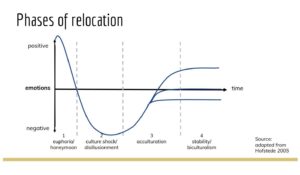New Zealand’s immigration edge: the power of an optimised personal economy
3 Jul 2023
Over the past two years, the headlines have been centred on new immigration policy, and more specifically, visa settings that enable the recruitment of skilled workers. Opening doors for more people at a policy level is crucial, but so is attracting and retaining them.
In an increasingly competitive environment, where skilled workers are desperately needed, we need to evolve our proposition to become more attractive to global talent. We’re not offering the highest global salaries and New Zealand’s lifestyle promise comes with a comparatively high cost of living.
But there’s still a significant arena in which we can punch above our weight, that lies in expanding our view on settlement. I believe we need to orientate our approach to what I call “optimising the personal economy” of skilled workers. This means going beyond jobs and salaries, into the whole ‘economy’ around each person, offering support for everything that people value, such as their family, passions and aspirations, etc. When a person’s own economy is thriving, they not only settle for the long-term – they become advocates.
I was reminded of the importance of this when I recently visited San Francisco to attend the New Zealand (NZTE) investment attraction events. I enjoyed talking with the founder of a large USA FinTech. An expat New Zealander, he has spent more than 15 years in the USA and actively assists New Zealand companies who aspire to expand there. This kind of access to deep experience in the USA is highly valued, as it helps businesses to better navigate the challenges and undoubtedly offers a softer landing in a complex and difficult market.
Here’s a New Zealander who has had an exceptional experience of moving to another country and is actively ‘paying it forward’ for the benefit of both the USA and New Zealand.
This got me thinking about the migrant experience on our shores. Our networks and connections are powerful enablers, if we were to apply this ‘personalised support’ approach to immigration, I believe it would provide a better experience. The benefit is not just a softer landing for migrant workers and their families, it’s a wealth of advocacy for the New Zealand experience.
Emerging tech company Outerdawn is a great example of a business offering personalised support
Outerdawn is a New Zealand video game developer at the leading edge of a burgeoning industry. The business is currently focussed on recruiting key specialist roles to fuel their growth, but they’re not about to go spearfishing in New Zealand’s niche industry pool. As People Operations Manager Caley Staveley recently explained, that’s keeping the musical chairs talent shortage alive. The business is more interested in building and growing the industry here as a whole, and that means looking offshore. They are focussed on recruiting key senior talent to grow their business, people with the rare combination of niche technical expertise and leadership, and they know that retention in these roles is paramount, therefore, they have taken a personalised long-term view on settlement. The company has both internal and external 1:1 support on offer for employees. Inside the business there is a multi-layered program which includes fun and connecting gaming experiences for the team designed to build lasting relationships. They also foster a welcome, inclusive culture for all employees and their families. Externally they deploy a specialist settlement team (Mobile Relocation) to wrap around each new hire, with support that begins before they arrive and lasts well into the future.
Bridget Romanes, from Mobile Relocation, is a key partner for progressive New Zealand businesses including Outerdawn. Her team runs a highly personalised program of support for each newcomer and their families, spanning everything from answering questions and arming people with information long before they leave their home country, to picking them up at the airport and setting them up in a home on arrival, then staying in touch and facilitating their community connections. There’s an important shift, not just in language, but in policy that businesses need to make in their recruitment approach if we are to be successful in retaining top international talent in New Zealand. Because, as Bridget says, “Resettlement is not relocation. Relocation is logistics, but settlement is emotive.” It’s also a long-term journey; on average it takes three years.
Phases of settlement over time
Diagram supplied by Mobile Relocation

What could the future hold?
Can businesses more widely adopt personalised settlement plans to address the acculturative stress that all new migrants experience when settling into a new country.
Many countries have identified the most challenging issues for migrants and are actively addressing those with solutions that make those countries more attractive, such as access to affordable housing. New Zealand’s approach to deliver ‘settling in programmes’ could be more widely applied, collaborative and centred around similar issues.
Imagine private companies joining forces with developers on living solutions for the skilled migrants to really go the extra mile. “Come to New Zealand and we’ll set your family up with a fantastic place to live, work and learn, a weekly delivery of the country’s finest produce, all the connections, mentors, and memberships you need to be supported and enjoy your passions, and more.”
Why not? We may be more effective in attracting and retaining people that want to positively contribute to our society for the long term.
This article is solely for information purposes. It’s not financial or other professional advice. For help, please contact BNZ or your professional adviser. No party, including BNZ, is liable for direct or indirect loss or damage resulting from the content of this article. Any opinions in this article are not necessarily shared by BNZ or anyone else.




